
Post-Transplant Timeline Breakdown
Many people interested in hair transplantation wonder what changes occur after the procedure and when results become visible. Today, we’ll walk through the entire transformation—from before the transplant to each post-op milestone. Will the hair really grow? Is recovery truly downtime-free? Let’s find out together.

In the reference image, we can observe that the patient’s forehead has widened and receded into an M-shape, with thinning in certain areas. This facial structure can make the person appear older and affect confidence—some may avoid certain hairstyles altogether. Today, this can be corrected with permanent hair transplantation to restore the hairline and create a facial frame tailored to each individual.

1 Day After Hair Transplant
Just one day after the procedure, the hairline becomes noticeably defined. Baby hairs begin to appear, and small scabs start forming. This is a critical period—grafts are still fragile and may dislodge. Patients must avoid touching, picking, or scratching the area. However, daily activities can continue as normal. There’s no need to isolate or take time off, though it’s best to avoid strong sunlight or sweat-inducing activities.
Hair can be washed the next day. Many patients feel hesitant to wash their own hair, so BLS Hair Center offers a specialized post-transplant shampoo service using physician-approved techniques to maintain cleanliness, protect grafts, and nourish new hair.



14 Days After Hair Transplant
At this stage, the hairline and facial frame are clearly visible. Scabs may still be present during the first two weeks. Transplanted hair begins to grow gradually. Patients can wash their hair normally, but gentle handling and adherence to medical advice are recommended for optimal results.
1–2 Months After Hair Transplant
During this phase, hair begins to shed naturally—a phenomenon known as “shock loss.” This is a normal part of the hair cycle and occurs with both FUE and FUT techniques. Post-transplant care and follow-up with a certified hair restoration specialist are essential to ensure effective results.
4–6 Months After Hair Transplant
This is often the most exciting phase for patients. Around 60% of the transplanted hair has grown in. Styling and grooming become possible. Full growth—up to 100%—typically takes about one year.

1 Year After Hair Transplant—Review Results
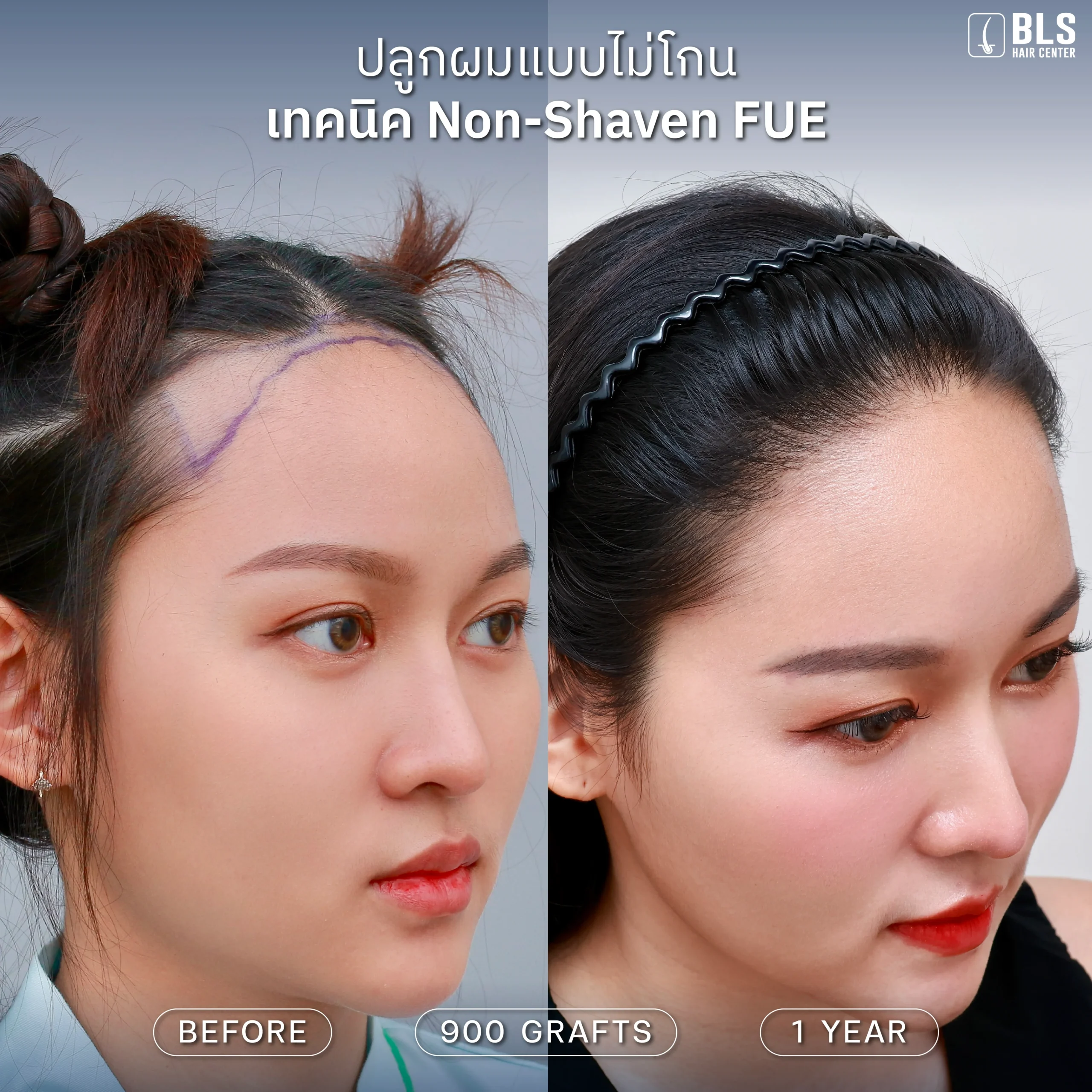
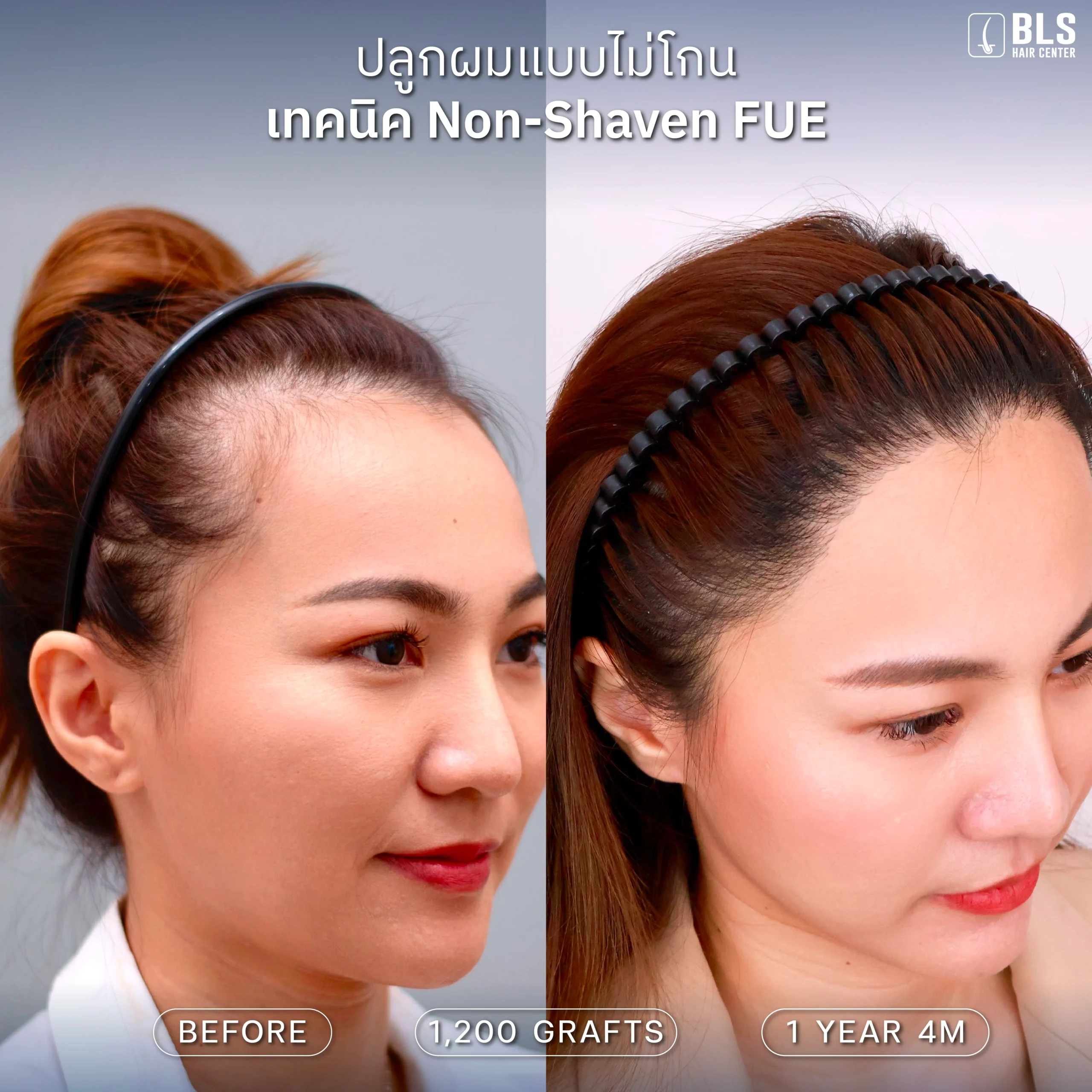
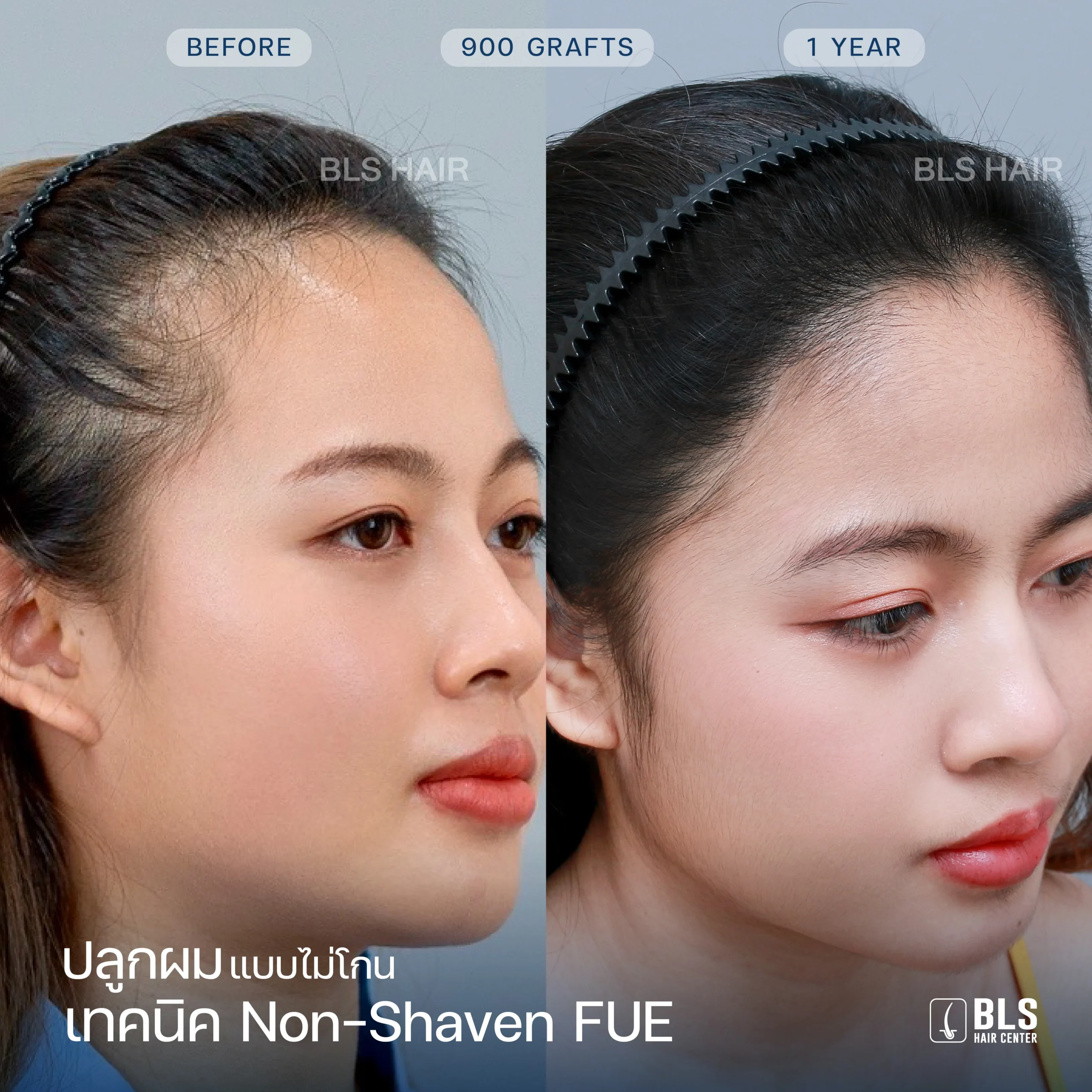
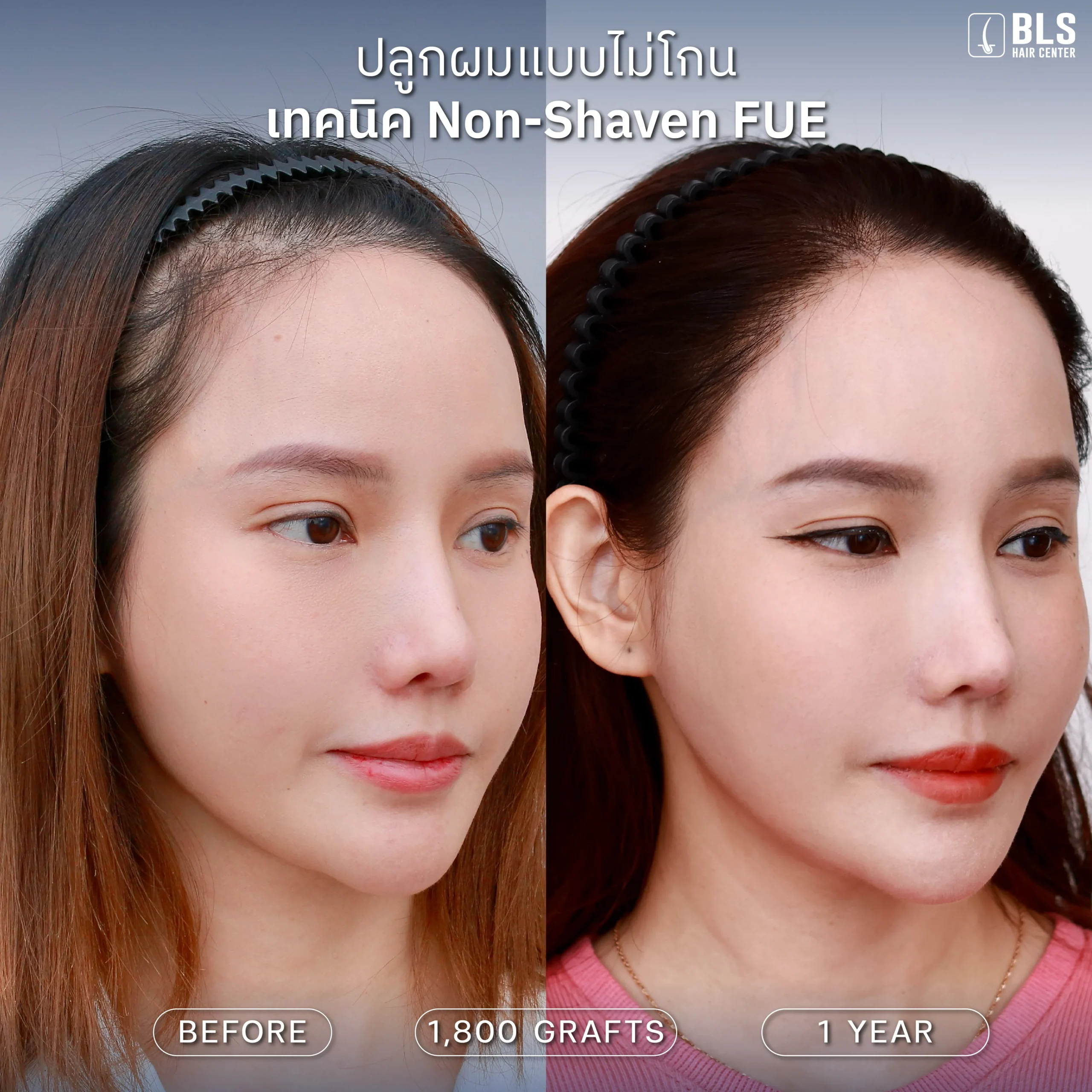
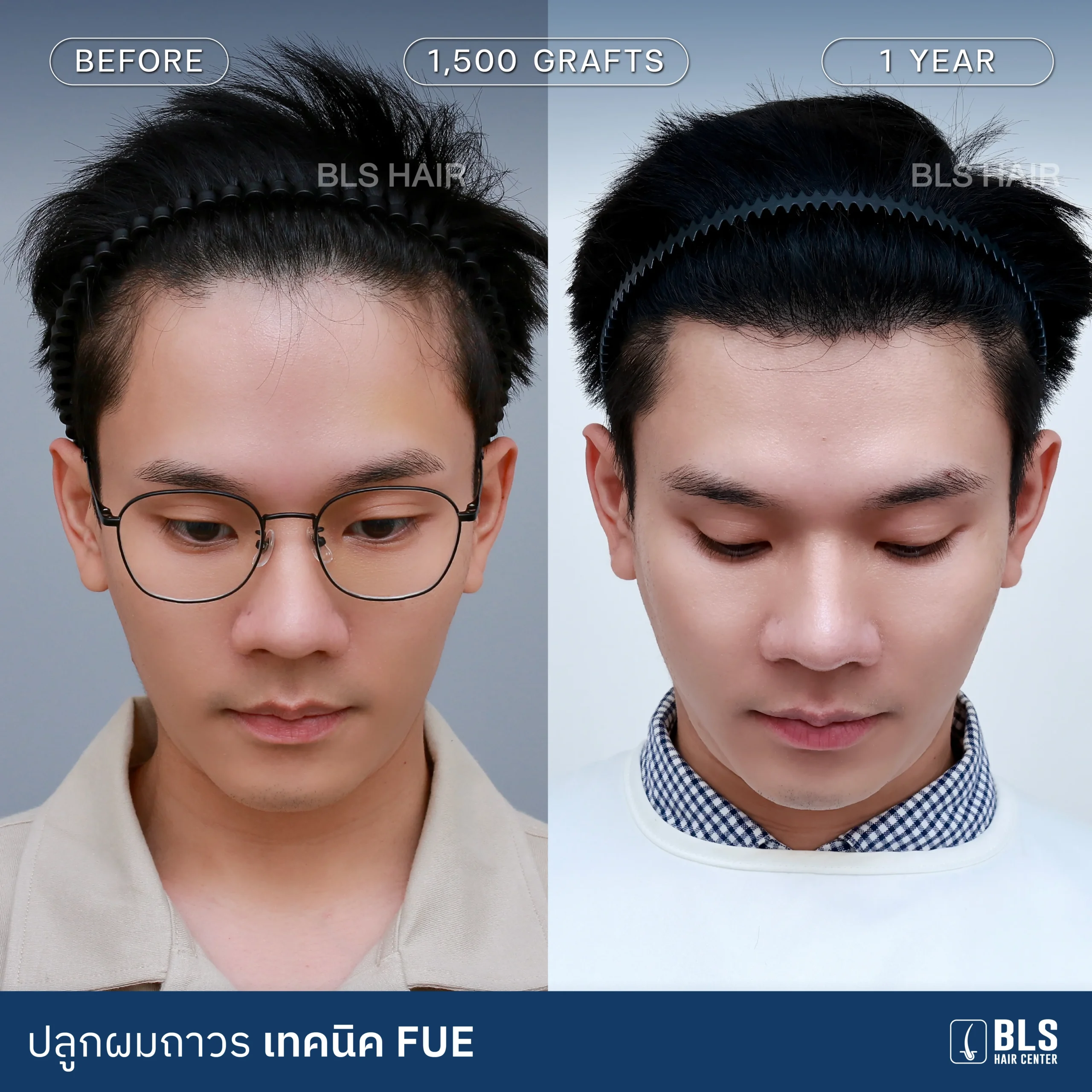
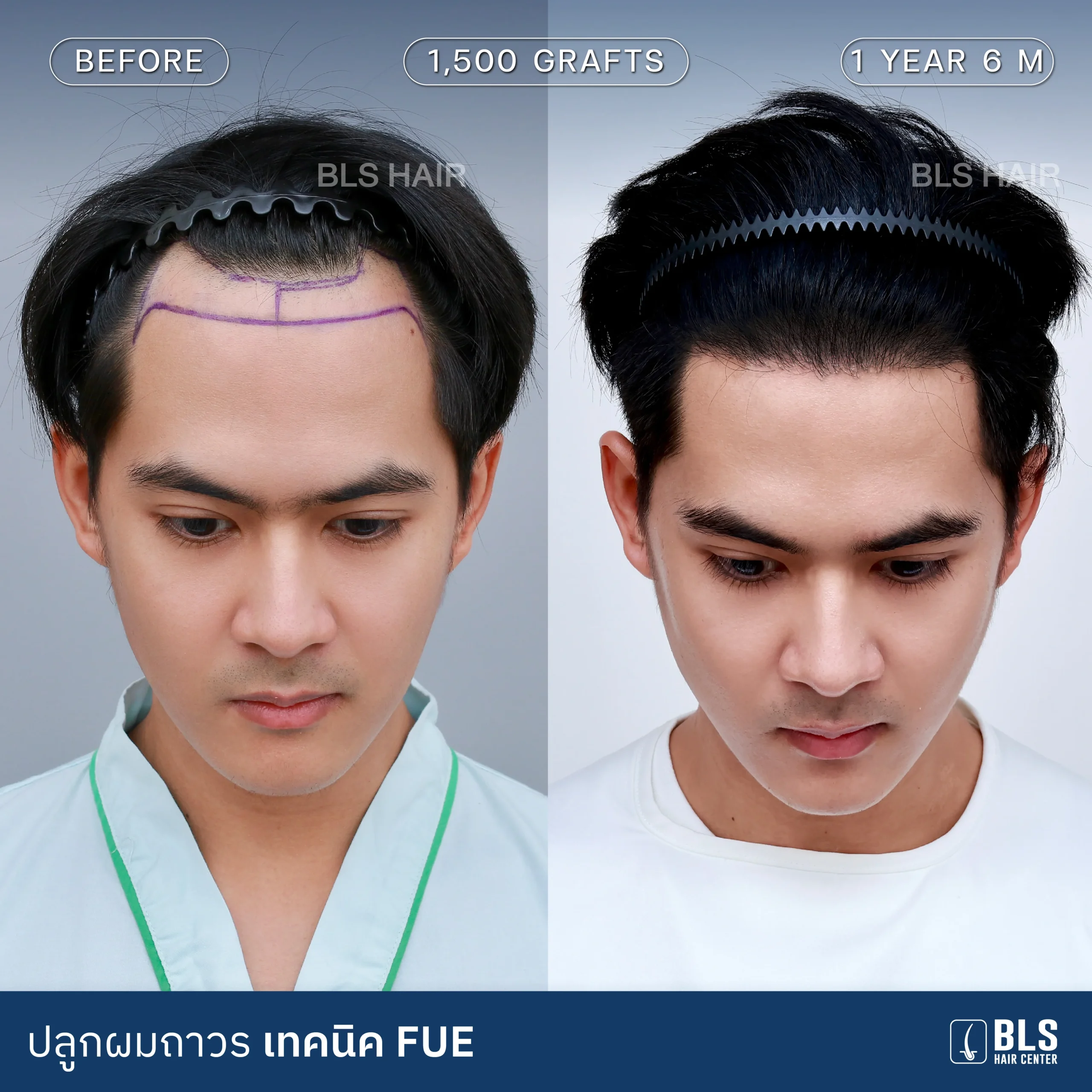
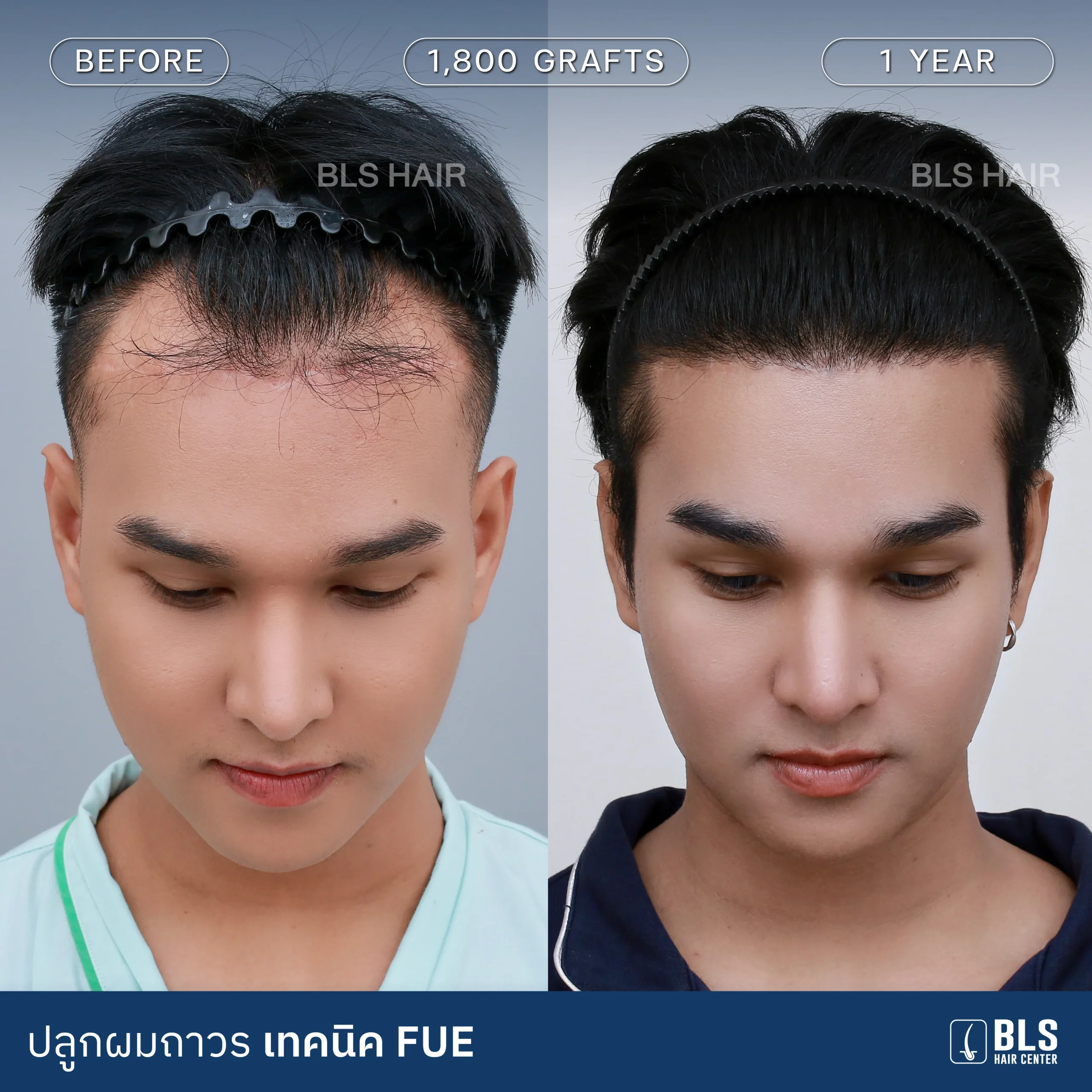
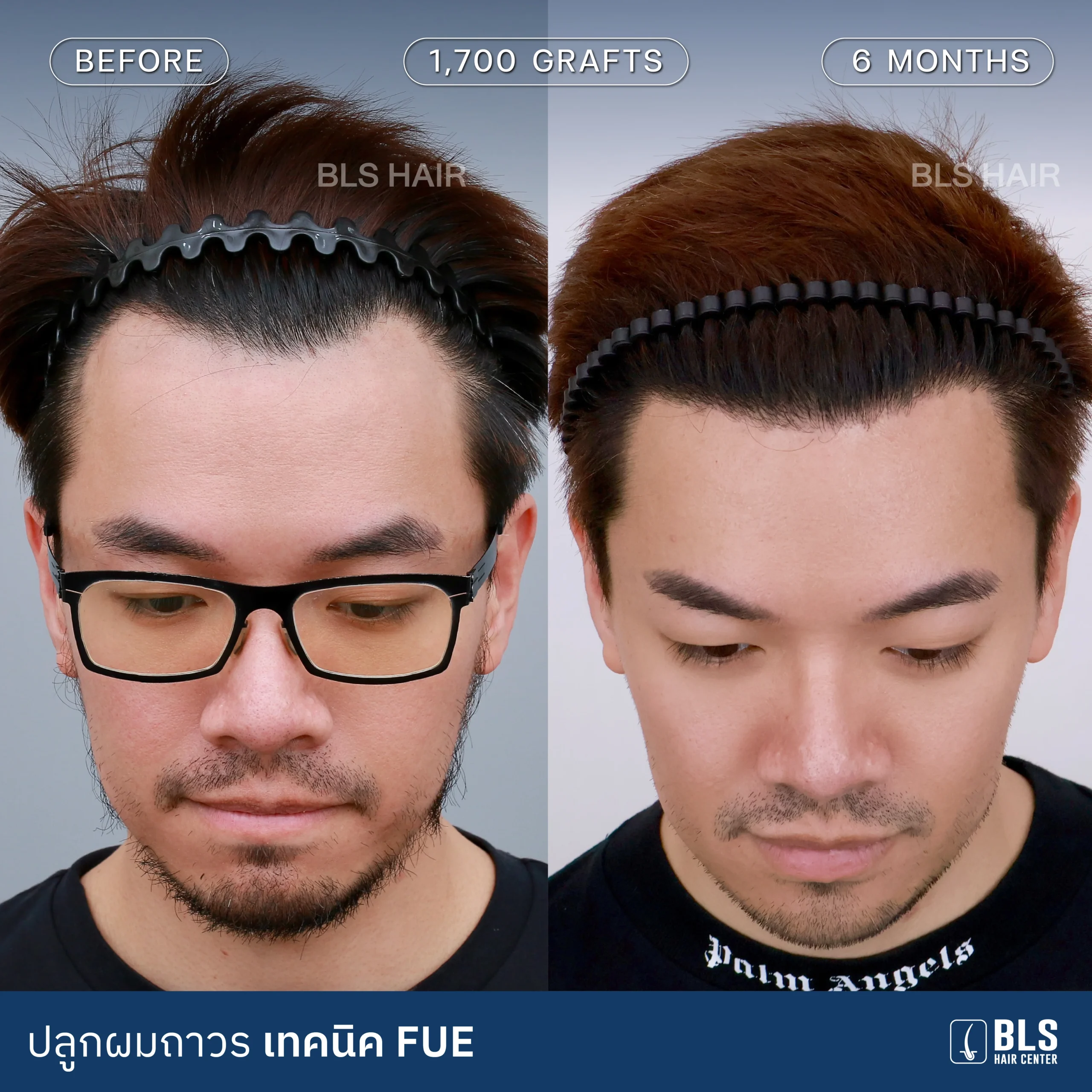
Female Timeline (Non-Shaven FUE Technique)
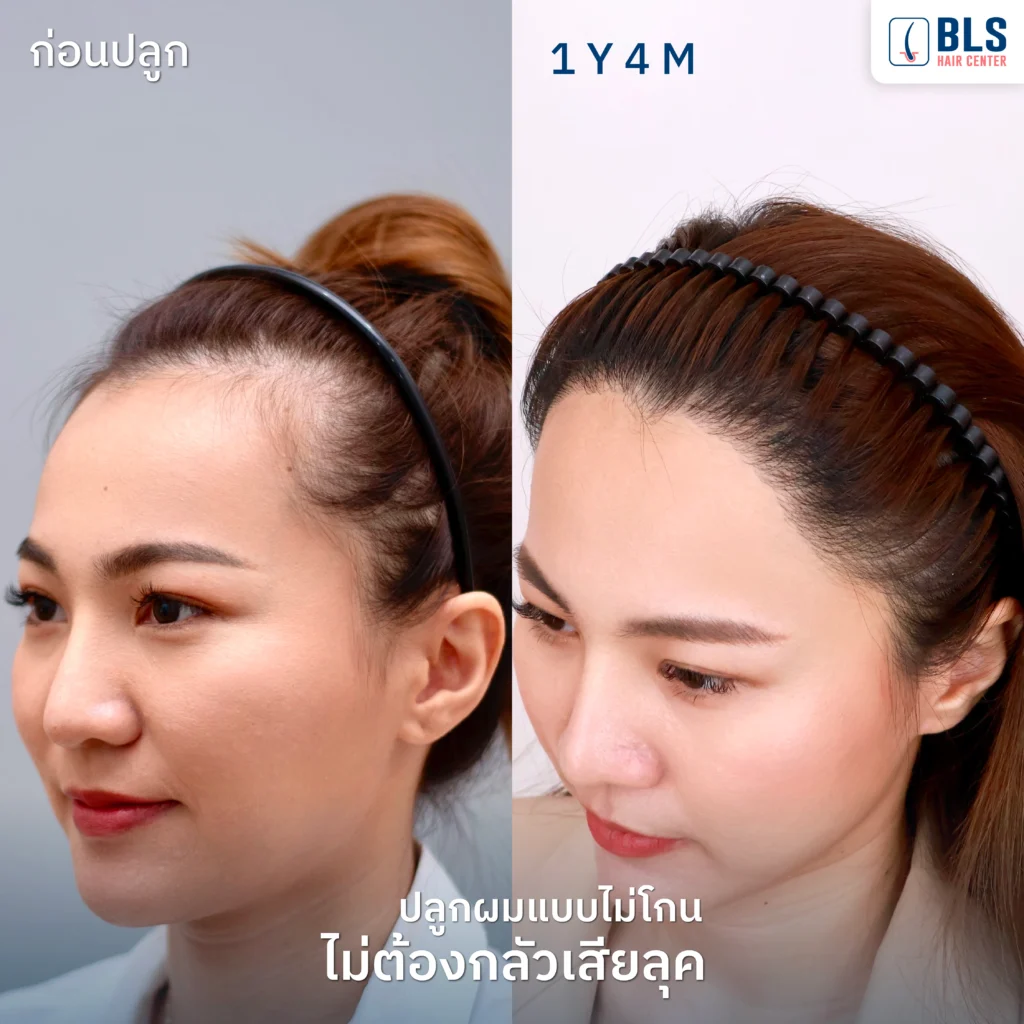
1 year after hair transplant
At the one-year mark, the transplanted hair reaches full growth. Baby hairs appear dense, the hairline looks natural, and the facial frame becomes noticeably softer and more balanced. The new hair is permanent and continues to grow even after trimming—just like natural hair.
Male Timeline (FUE Technique)
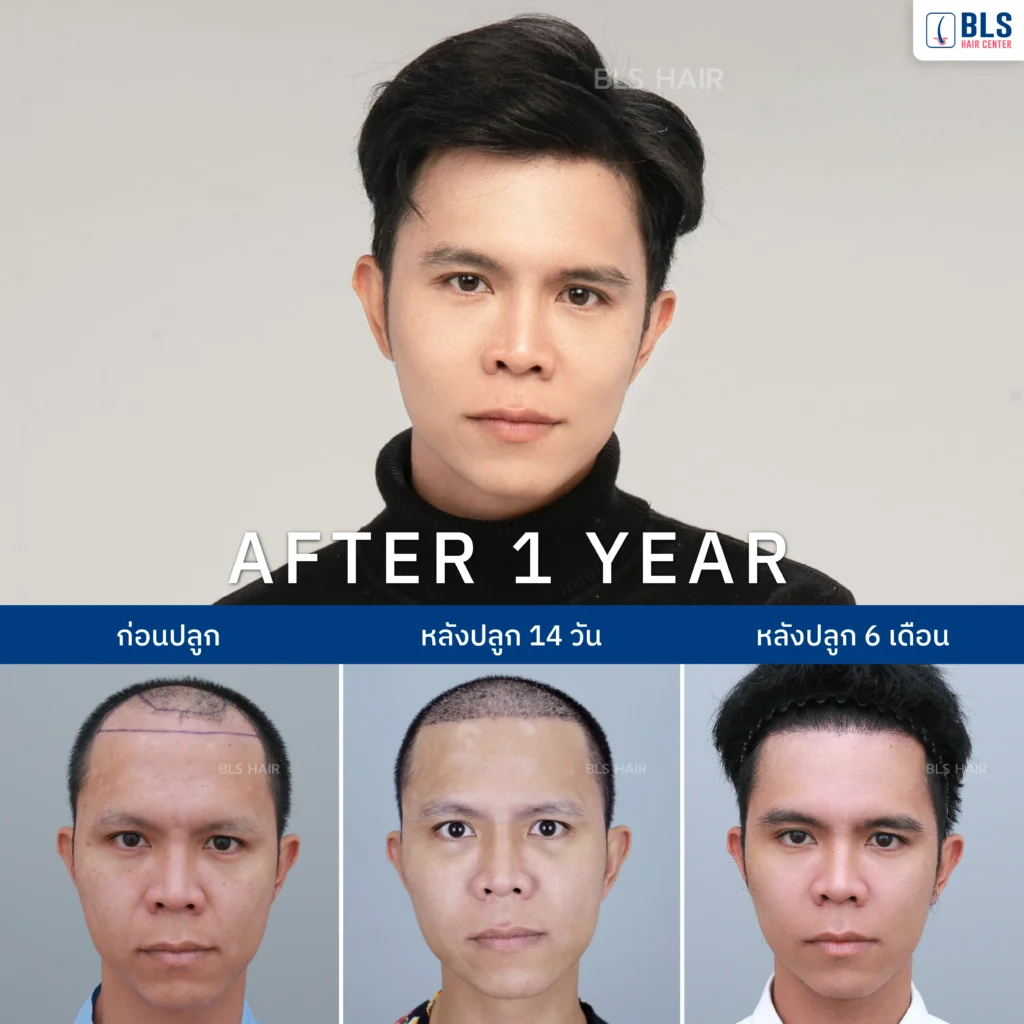
1 year after hair transplant
After one year, hair density is fully restored. Patients can style their hair freely without worrying about visible scalp, thinning, or baldness. The new hairline looks natural and blends seamlessly with existing hair.
Healing Timeline for Donor Area by Technique
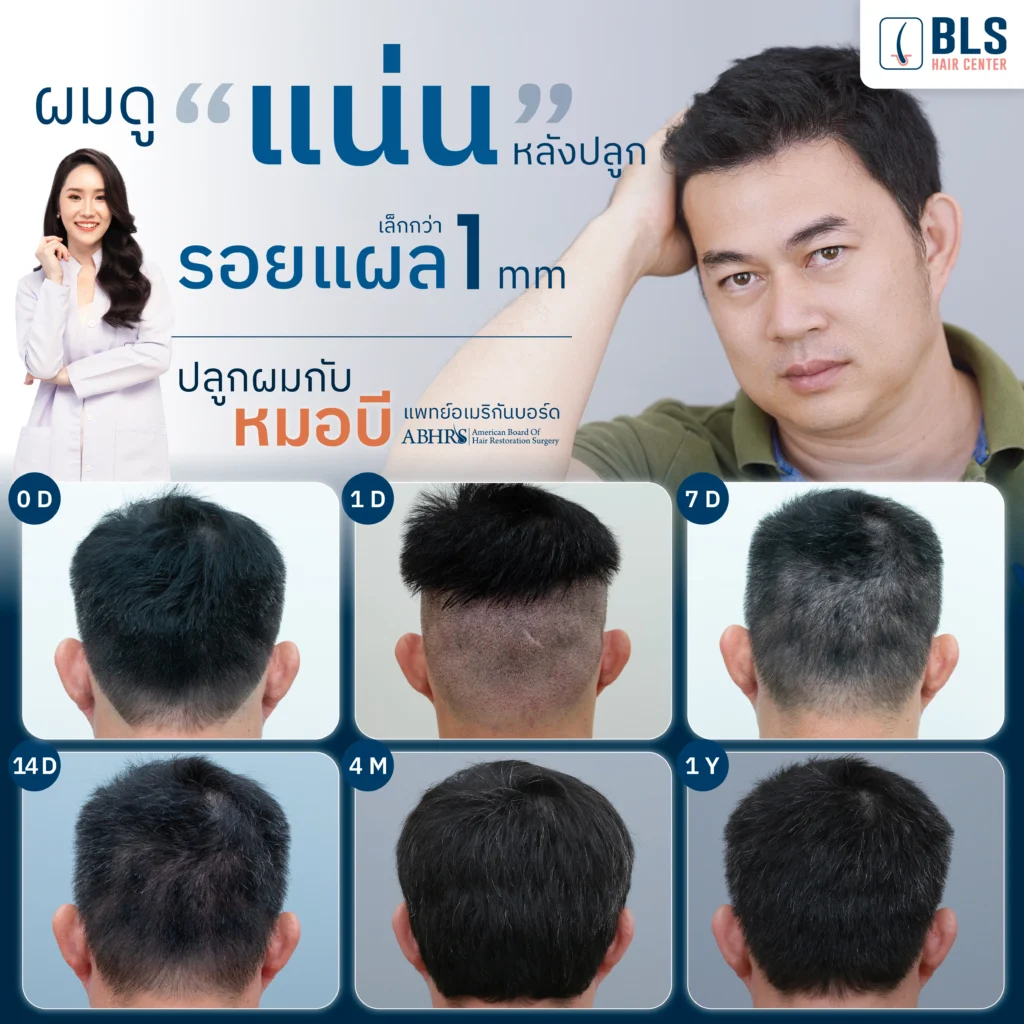
FUE Technique
- Day 1: Back of the head is shaved. Small scabs appear across the donor area.
- Day 7: Hair begins to grow, making scabs less visible. Healing progresses.
- Day 14: Hair grows longer, fully covering the donor area. Scabs dry and flake off naturally—avoid picking.
- Month 4: Hair is fully grown, donor area looks normal.
- Month 12: Full results achieved. Frontal hairline is 100% restored, donor area remains unaffected.
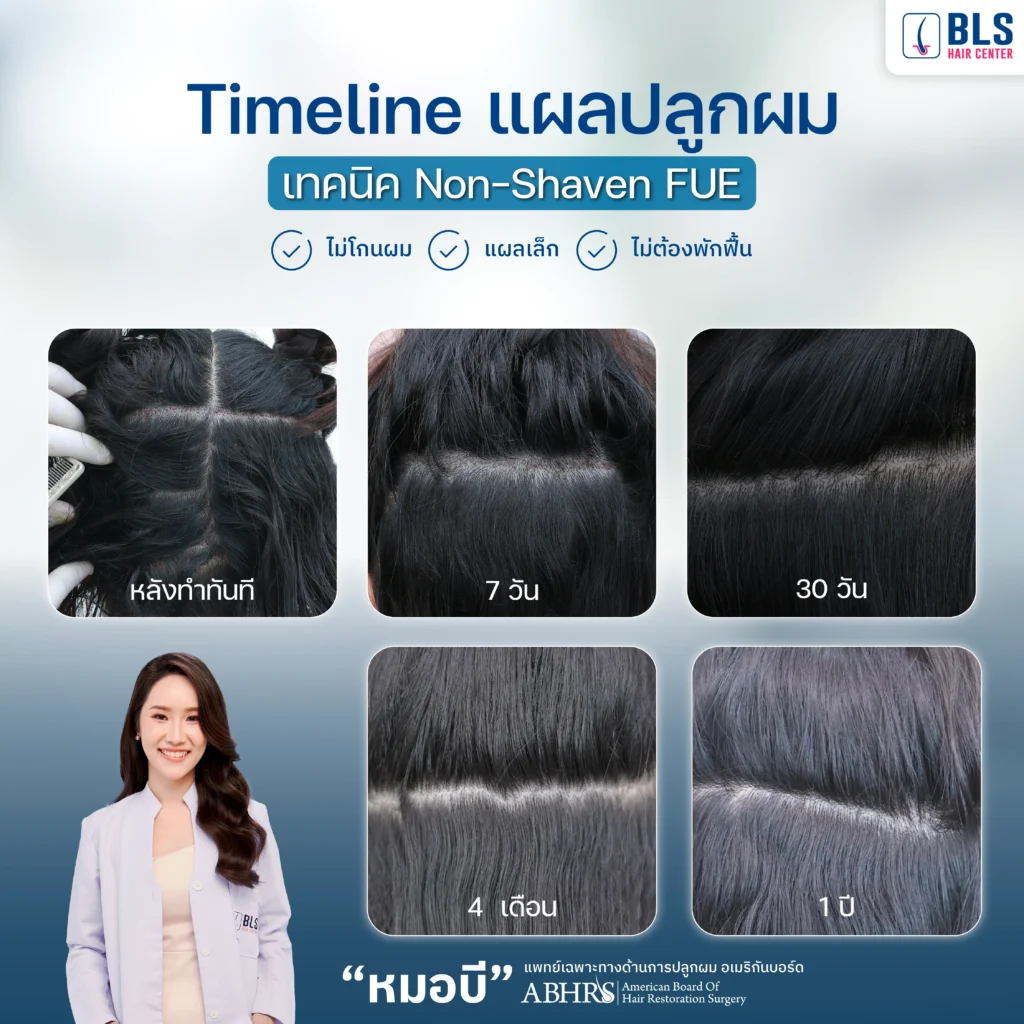
Non-Shaven FUE Technique
- Immediately After: No shaving required. No visible scarring. Hair remains long and intact. Patients can tie their hair and resume daily life immediately.
- Day 7: Scabs begin to dry across the donor area.
- Month 1: Scabs have fully shed. Scalp returns to normal with no visible marks.
- Month 4: 60% of results visible. Patients can style their hair freely.
- Month 12: Full results achieved. Natural-looking hairline boosts confidence and appearance.
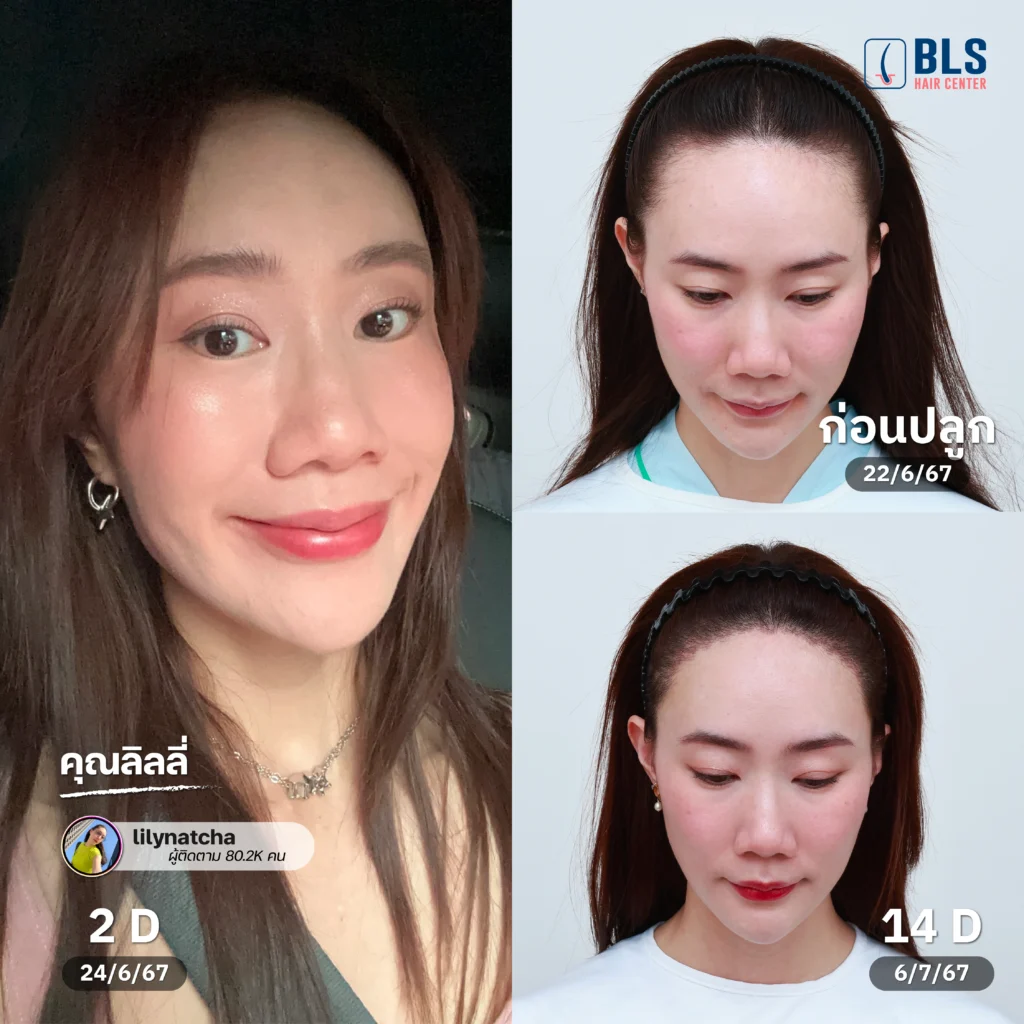
Long Hair Transplant Technique
- Day 1: Long hair is visible immediately. Scabs are hidden beneath the hair. No visible scarring. Patients can tie their hair and attend events without downtime.
- Day 14: Hairline and facial frame are well-defined. Scabs begin to shed. By day 14, the donor area shows little to no scarring.
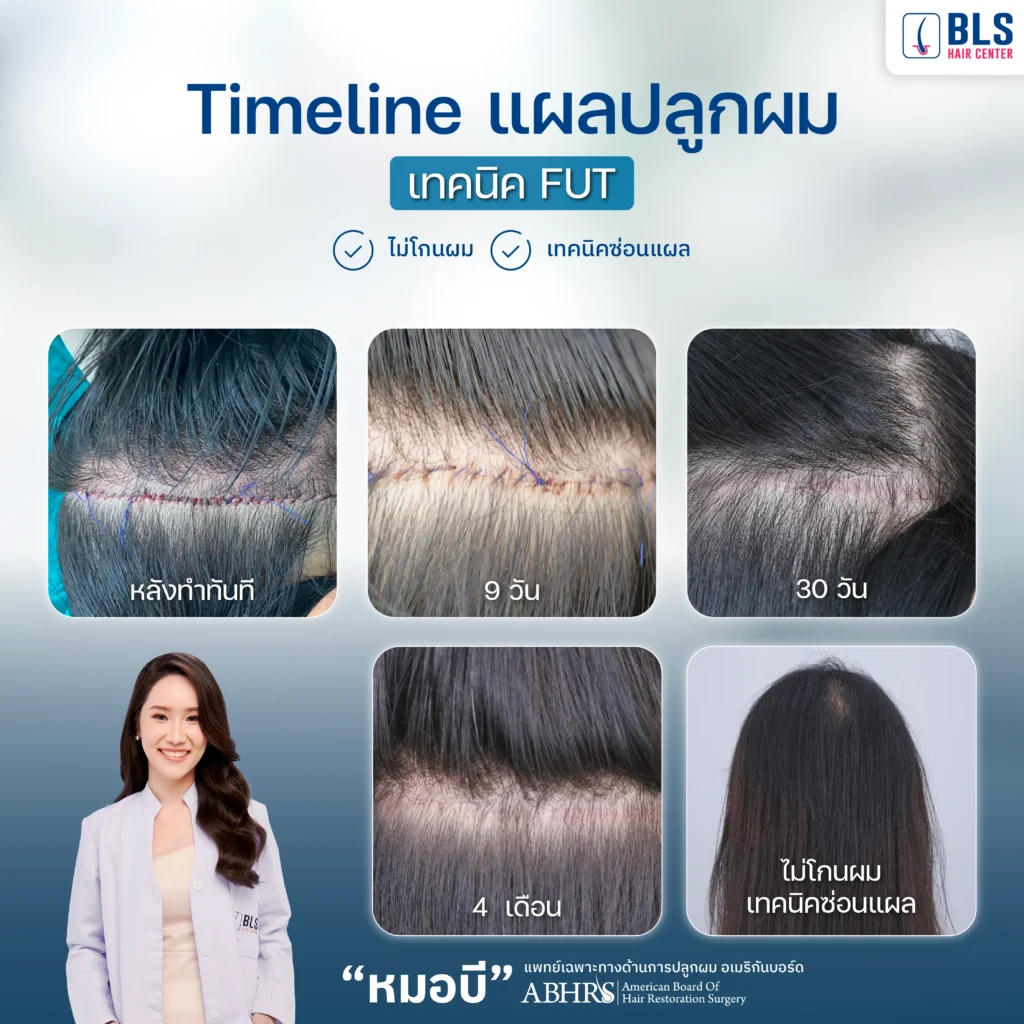
FUT Technique
- Immediately After: A thin linear scar appears from the strip excision. It can be hidden beneath existing hair.
- Day 9: Scar begins to dry. Sutures can be removed around day 14.
- Month 1: Scar heals and appears as a faint red line.
- Month 4: Scar fades and blends with surrounding scalp color.
Post-Transplant Care Tips for Best Results
- Spray saline every hour for 5 days (except during sleep)
- On day 7, apply olive oil to soften scabs, followed by shampoo and light therapy
- Take hair growth stimulants as prescribed
- Take painkillers and antibiotics as prescribed
- Avoid sweat and intense exercise for 1 week
- Wear a head wrap to protect from dust, wind, and sun for 1 week
- Avoid alcohol and smoking for 2 weeks
- Avoid scratching or impact to the transplanted area
- Avoid bending forward to prevent facial swelling
- Haircuts allowed: FUE after 1 week, FUT after 1 month
- Avoid swimming for 1 month
- Avoid diving or extreme heat/cold for 4 months
Note:
- Pimples may occur post-transplant—your doctor will advise accordingly
- FUE patients are scheduled for shampoo and light therapy for 7 days. If unavailable, home shampooing with Hibiscrub is recommended. A post-op shampoo tutorial is provided on day 1.
- FUT patients are scheduled for wound care between days 7–14 until stitches are removed.
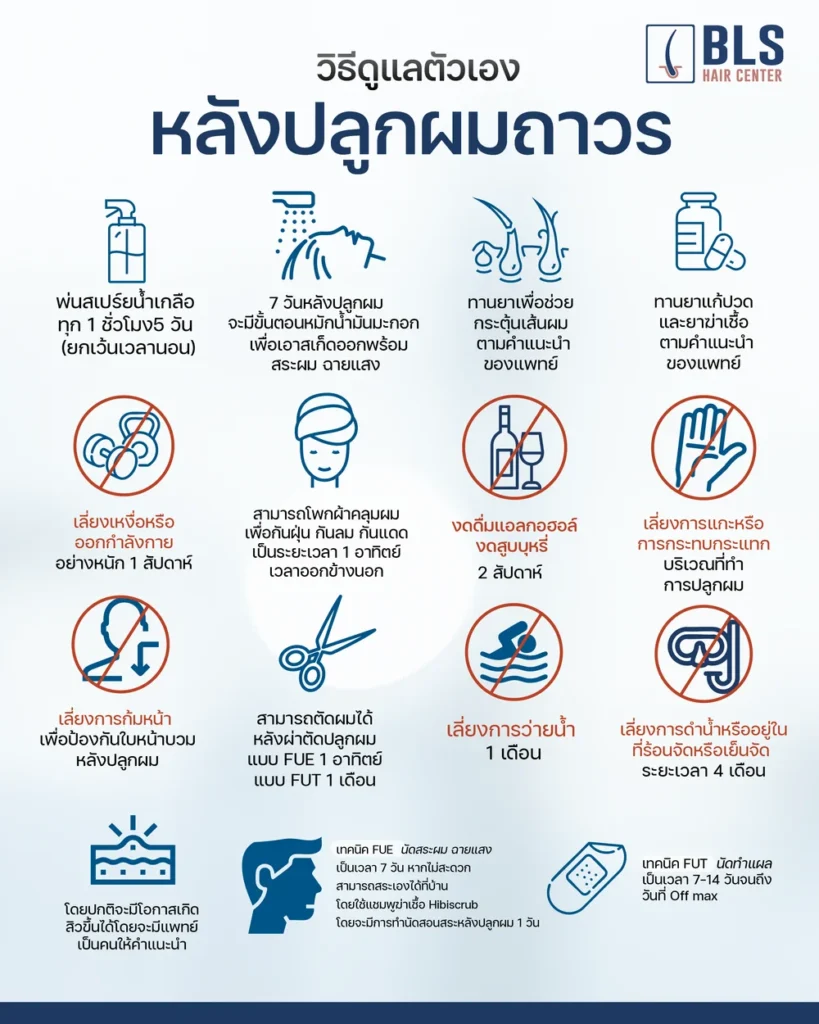
Post-Transplant Enhancements by Hair Specialist
- PRP Hair Injections
PRP Anti-Hair Loss treatments can enhance transplant results. Using your own platelets, PRP stimulates hair follicles and prevents shedding in untreated areas.

Get to Know PRP: The Solution for Thinning Hair and Fuller Hair
- LED Hair Growth Therapy
LED light therapy strengthens follicles, reduces shedding, and promotes regrowth of both transplanted and existing hair. It also reduces swelling and accelerates scab healing—boosting overall transplant success.

LED Hair Growth Therapy
If you’re interested in consulting a certified hair transplant specialist, you can book a free appointment at BLS Hair Center. Every patient is treated by Dr. Kulvipaphat Chattharapisanukul, one of only 15 physicians in Thailand certified by the International Society of Hair Restoration Surgery (ISHRS, USA) and the World FUE Institute with a Fellowship in Hair Restoration Surgery.
Recommended Reading
12 Easy Self-Care Tips After a Permanent Hair Transplant This article has the answers








